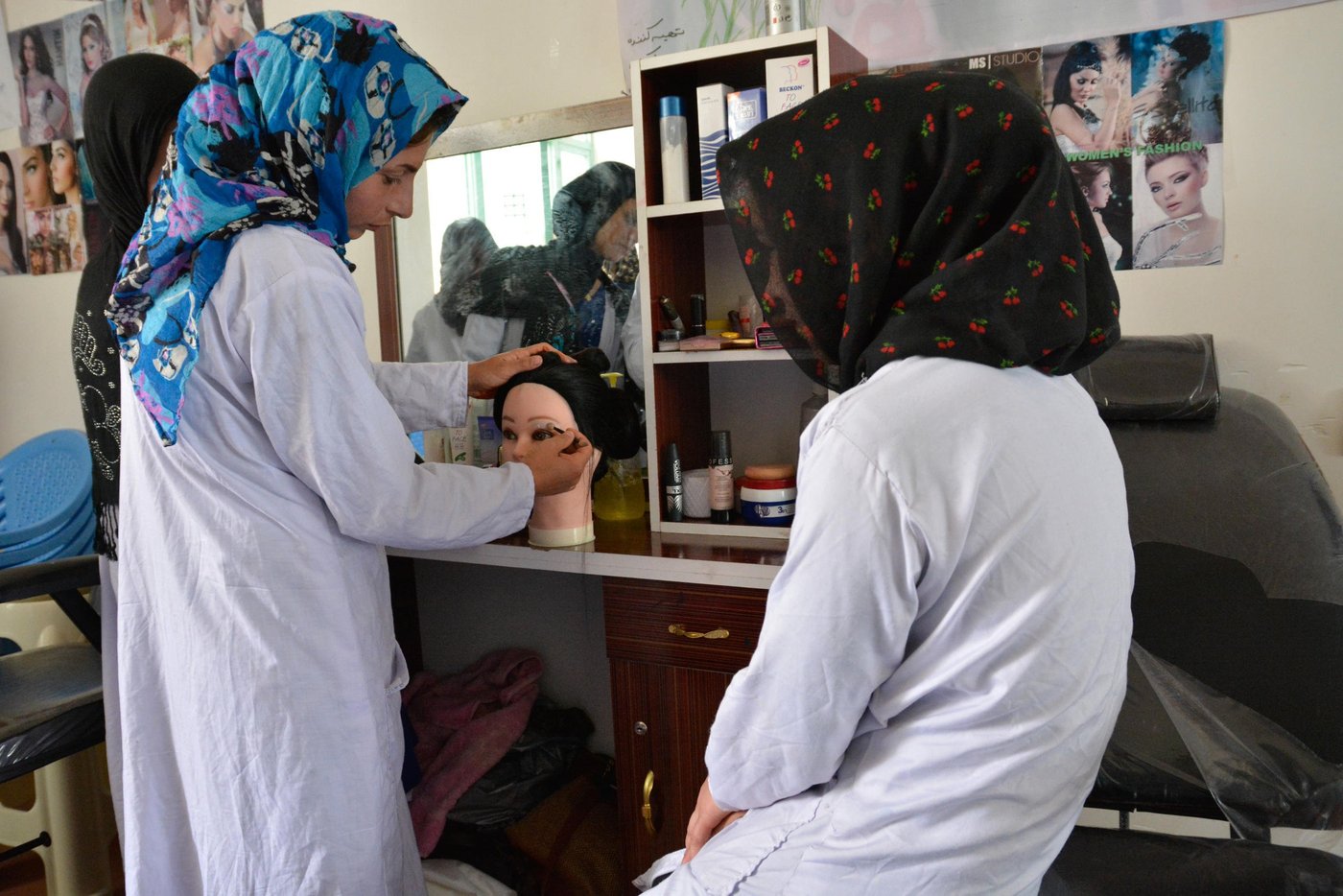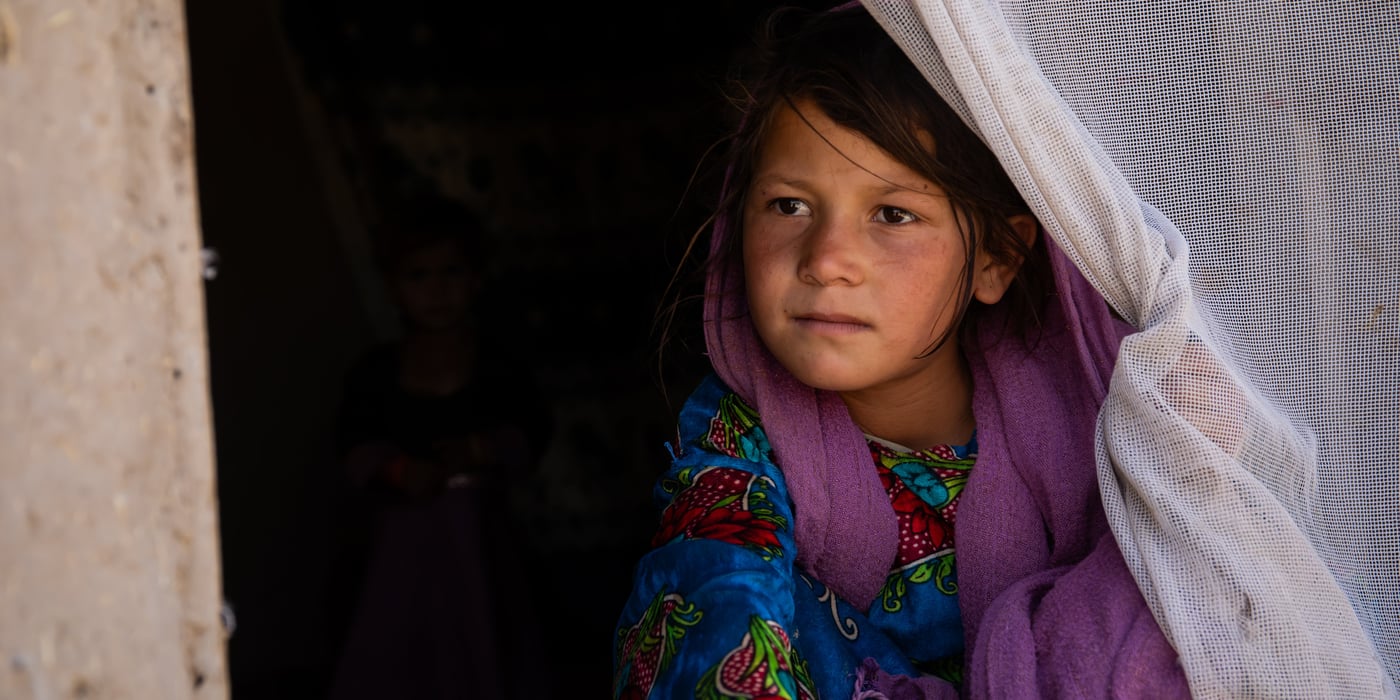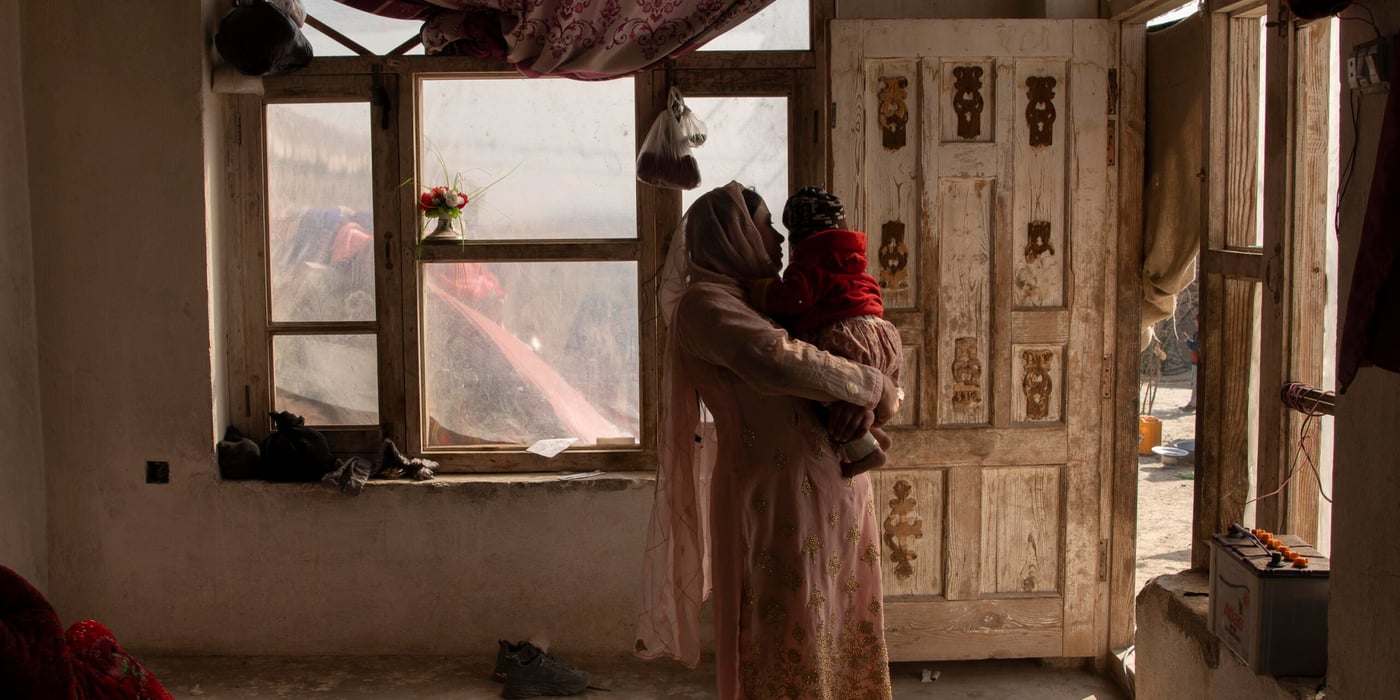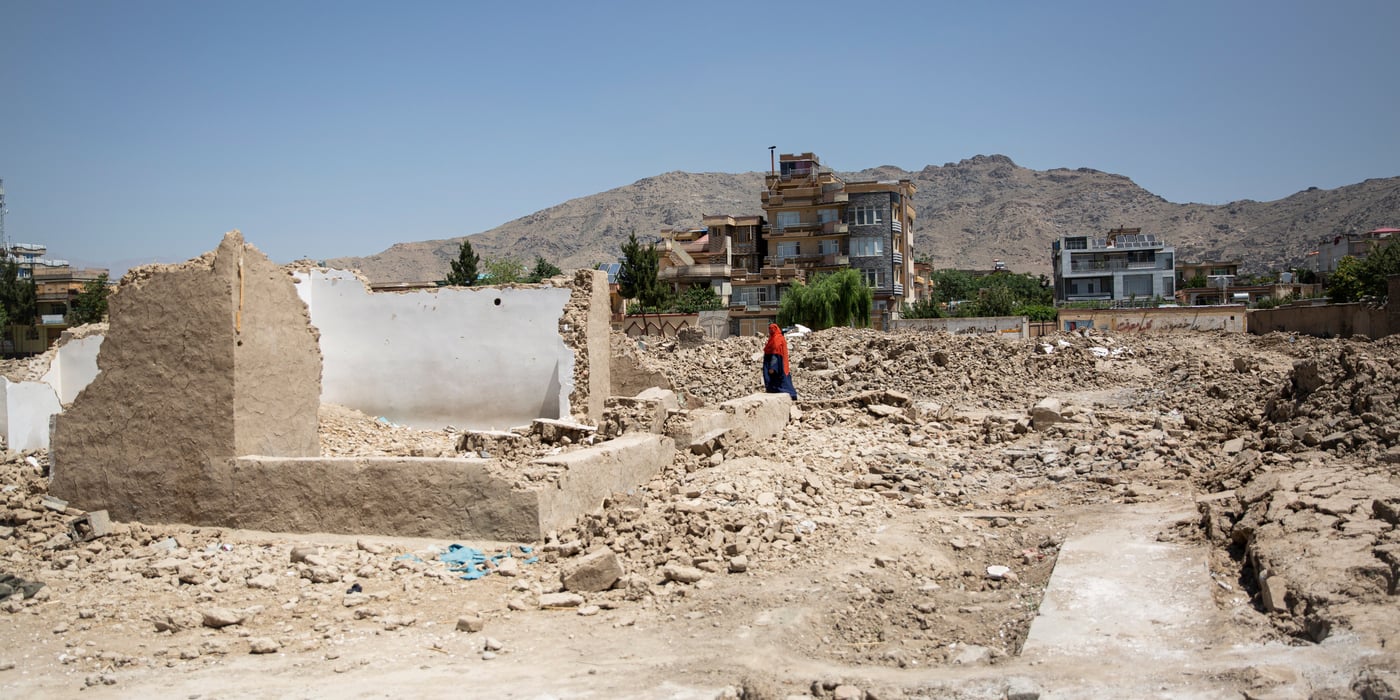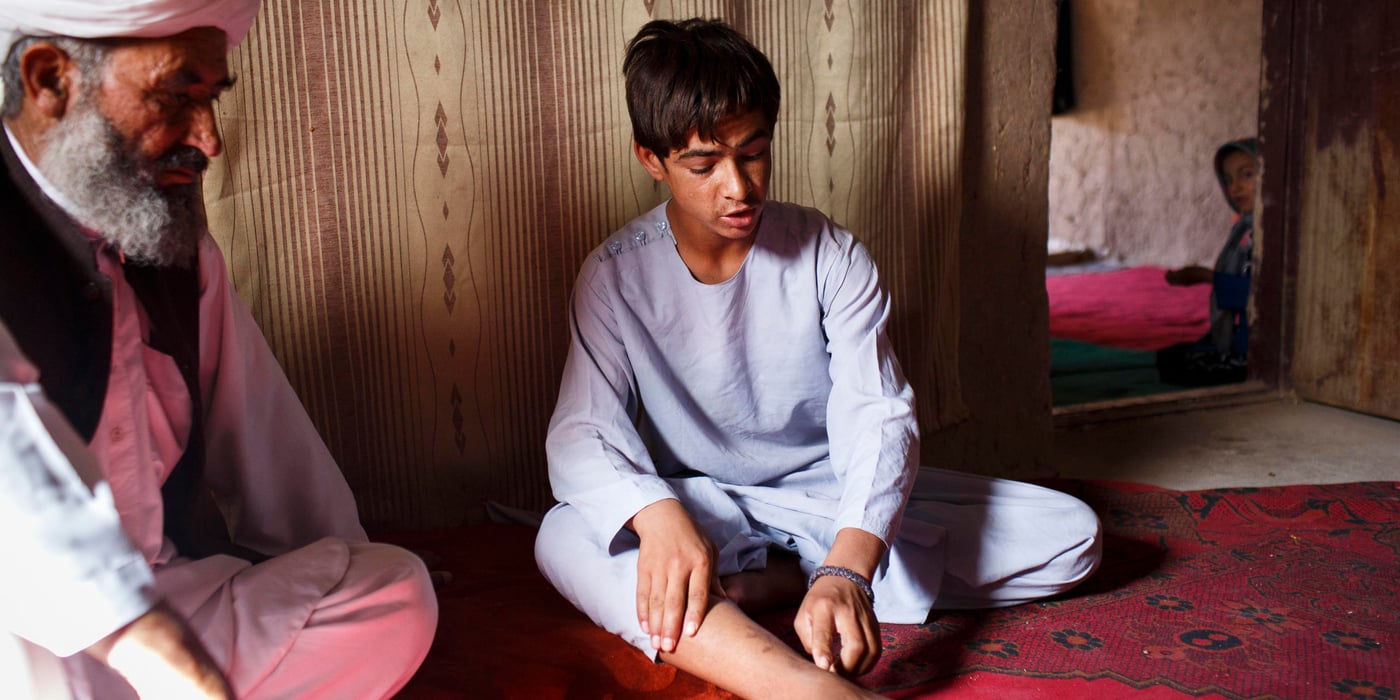
When his sister died, Ghulam decided to smuggle himself to Iran from Afghanistan, in hope of a better life.
Travelling through the lawless border area between Afghanistan, Pakistan and Iran, the overcrowded pickup truck hit a bump, and the young boy was catapulted out. In the fall, he broke his leg and was left for dead in the desert. Border patrol picked him up and deported him to Afghanistan, where his injury prevented him from working.
“Now I know how to make shoes. My friends and I are planning and dreaming to open a small shoemaking shop. We know there is a market demand for our products,” says Ghulam.
The family breadwinner
Ghulam used to work in a general store, earning 80 dollars a month. After his accident, he was unable to do manual labour. His father suffers from a leg infection, leaving Ghulam as the only breadwinner in the family.
Wishing to find a way to support his family, he enrolled in the Norwegian Refugee Council’s (NRC) youth education programme in Herat, Afghanistan’s third largest city. Today, with the help of literacy and numeral classes, he can read and write. Vocational training has taught him how to make shoes.
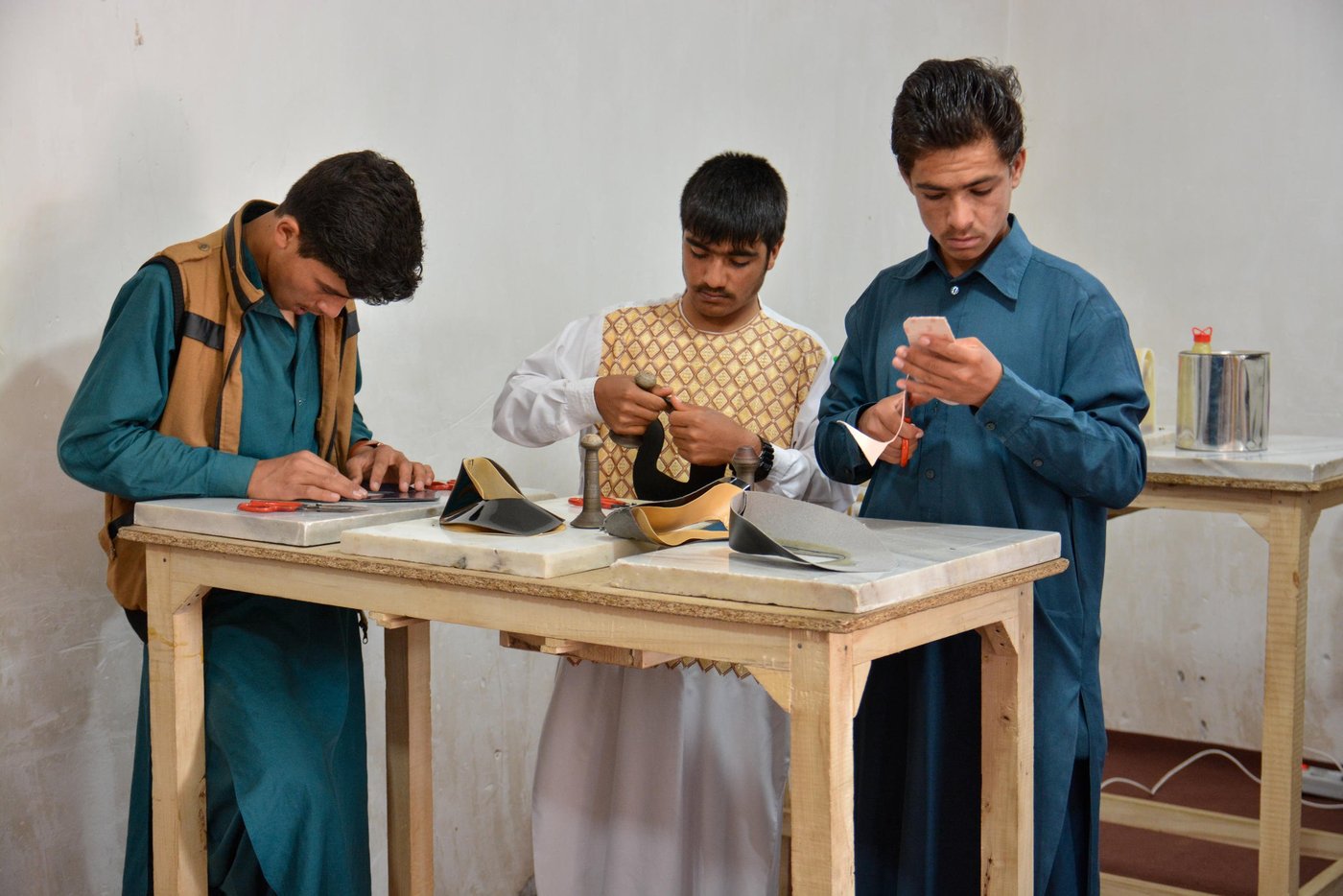
“The shoes we are making are cheaper compare to the exported ones in the markets and very comfortable to wear,” says his teacher, Sayed Asghar Hussaini.
“The students have changed a lot and every one of them are capable of starting their own business,” he adds.
Life changing skills
Nazgul, 26, joined NRC’s hair and beauty training course, hoping to become a beautician. “I haven’t missed any single class and really need to complete this course,” she says.
Nazgul’s husband left her alone with their one-and-half year-old daughter, relying on her father’s five dollars-a-day income. Nazgul, who had never attended school in her life, is now encouraged by her teachers to start her own business.
“I have learnt a lot and I hope soon I start my own beauty salon,” she says joyfully.
